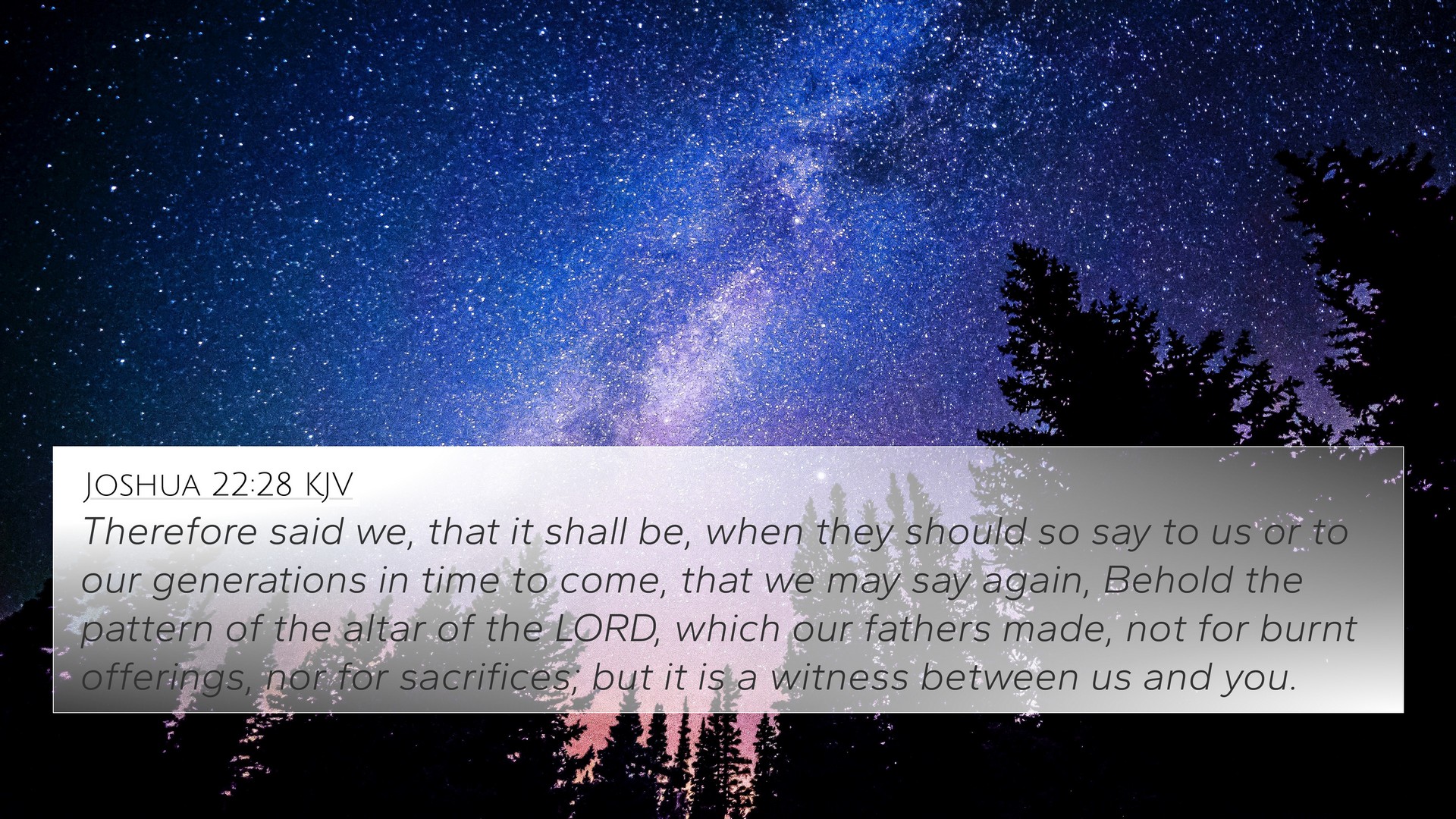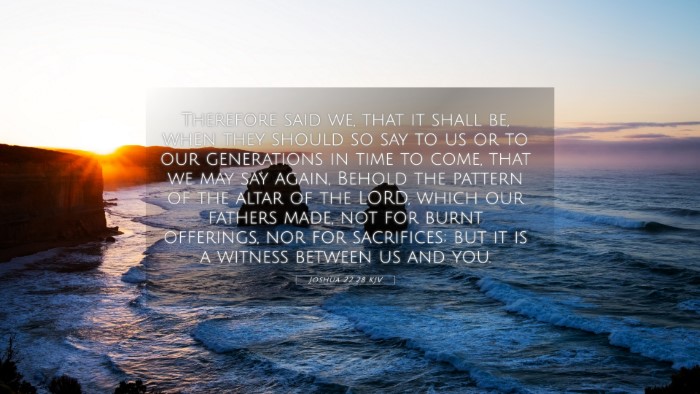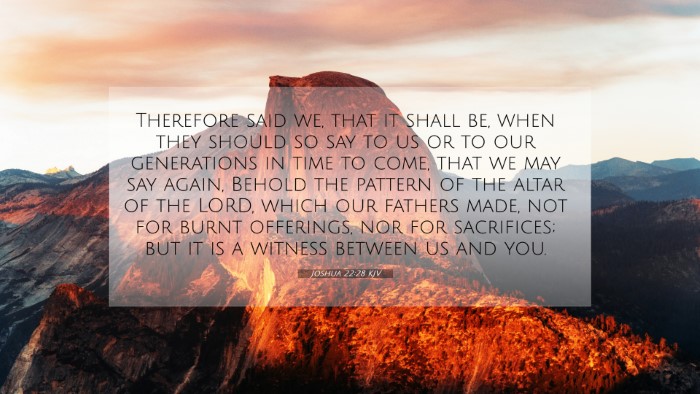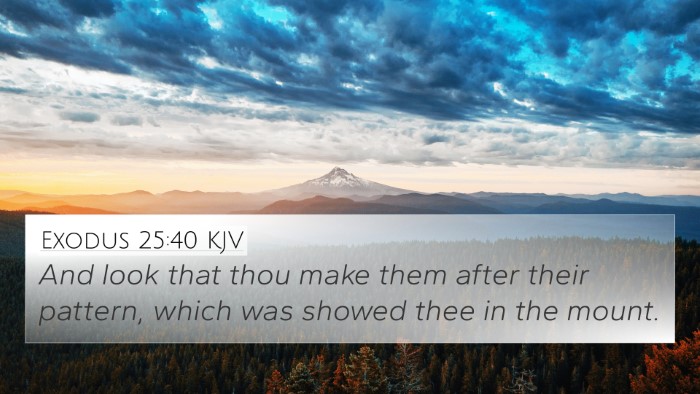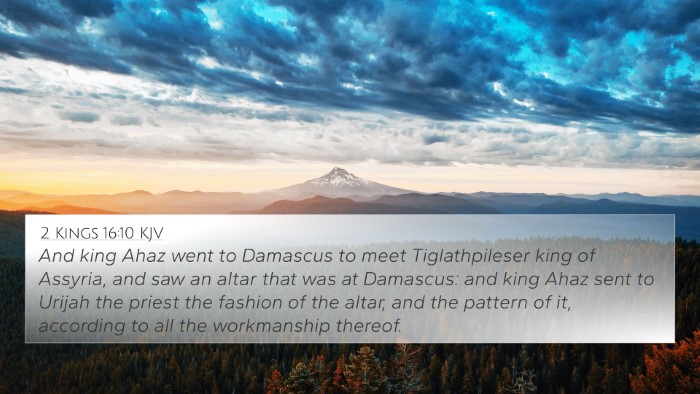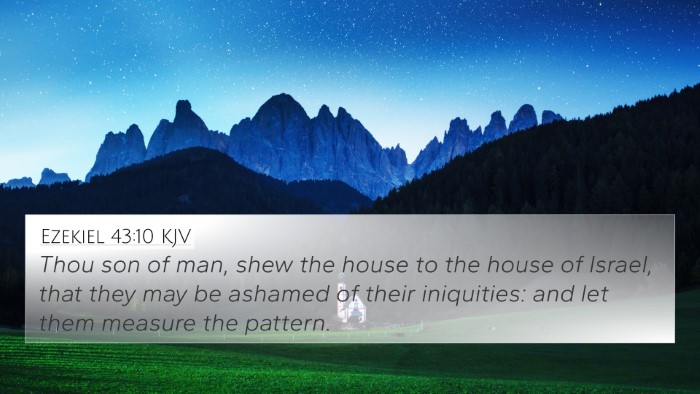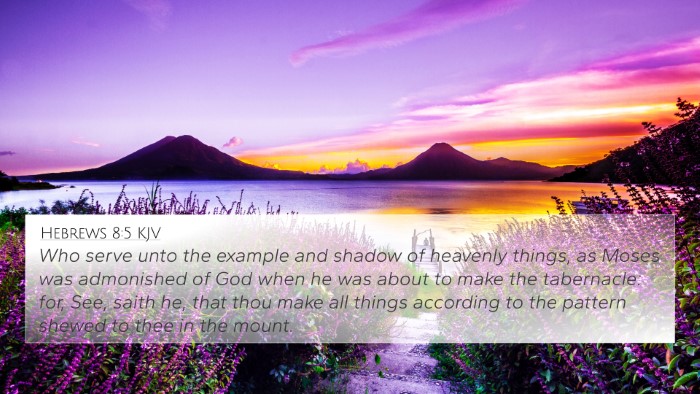Understanding Joshua 22:28
Verse: "Therefore we said, 'If they should say thus to us or to our descendants in time to come, we will say, "Here is the replica of the altar of the Lord, which our fathers made, not for burnt offerings nor for sacrifices, but it is a witness between us and you."'”
Interpretation and Summary
The verse reflects the commitment of the tribes of Reuben, Gad, and the half-tribe of Manasseh to clarify the purpose of the altar they built. This altar was not intended for sacrifices, but rather a reminder of their identity and their faithfulness to God, serving as a witness to maintain unity.
Insights from Public Domain Commentaries
- Matthew Henry: Henry emphasizes the importance of the altar as a symbol of unity between the tribes and God. He notes that while the altar’s function was misunderstood, the intent was to reinforce their heritage and bond as part of God's community.
- Albert Barnes: Barnes points out that the building of the altar by the eastern tribes was a preventive measure. He believes it signifies the desire for communication and a testament against future disunity, showing their intentions clearly to the western tribes.
- Adam Clarke: Clarke's commentary highlights the altar’s function as a testimony. He remarks that it was essential for the tribes to clarify their motivations to prevent any future disputes about worship practices, further displaying their faithfulness to God’s commands.
Bible Cross-References
Joshua 22:28 connects deeply with several other scriptural references, providing a more comprehensive understanding through cross-referencing Bible texts:
- Joshua 22:10: Discusses the building of the altar and the potential concerns it raised among the other tribes.
- Numbers 32:24: Reflects the agreement made by the tribes about their responsibilities and place in the land.
- Leviticus 17:8-9: Establishes the importance of worshiping at the designated place, emphasizing the significance of intent in sacrifices.
- Deuteronomy 12:5-7: Highlights God’s command to worship in one central place, which underscores the importance of maintaining the correct worship practice.
- 1 Samuel 7:12: The concept of building altars as a testimony to God’s faithfulness and providing a memorial aspect.
- Ephesians 4:3: Discusses the importance of unity among believers, which connects back to the intent of the altar as a witness to prevent division.
- Hebrews 13:15: Encourages continued worship and sacrifice in praise, linking to the themes presented in Joshua 22.
Thematic Connections
This verse allows for thematic connections that enhance understanding of Biblical unity, identity, and worship:
- Unity in Diversity: The building of the altar serves as a reminder that despite geographical division, the tribes share a common faith.
- Identity and Heritage: It reinforces the connection of these tribes to their ancestors, promoting continuity in faith practices.
- Preventive Measures in Communication: The desire to clarify intentions shows the need for open communication to avoid misunderstandings.
Applications for Bible Study
When studying this verse, consider the following:
- Use bible concordance tools to find similar verses that discuss themes of unity and sacrifice.
- Explore a bible cross-reference guide to deepen understanding of how this verse interacts with others.
- Engage in cross-referencing Bible study methods to consider how the New Testament reflects on Old Testament practices.
Conclusion
In conclusion, Joshua 22:28 serves as a vital reminder of the importance of intentions behind worship and the critical nature of unity within the community of believers. By engaging with the cross-references and themes presented, one can truly grasp the depth and relevance of this passage in Biblical understanding.
